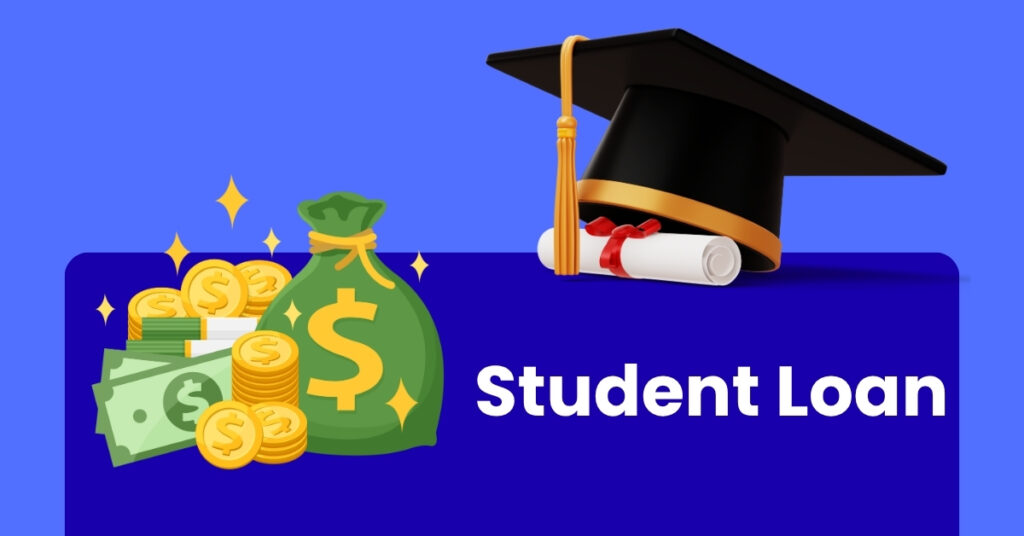Best Low-Interest Student Loans Of August 2025
As we enter 2025, the demand for low-interest student loans continues to grow. With tuition costs on the rise and student debt at an all-time high, securing a loan with the lowest interest rate possible can significantly reduce the total amount paid over time. When it comes to choosing the right loan, understanding the various rates, lenders, and loan terms is crucial.
In august 2025, students have more options than ever before to find affordable financing for their education. Whether you’re looking for federal student loans, private student loans, or refinancing options, it’s essential to compare rates and terms to secure the best possible deal. By doing so, you can avoid paying high interest over the course of your loan and set yourself up for financial success after graduation.
Compare Student Loan Rates, Lenders
When looking for student loans with the lowest rates, comparison is key. Rates can vary widely between federal and private loans, as well as from one lender to another. Here’s how to compare rates effectively:
Federal vs. Private Loans
- Federal Loans: These loans often offer lower interest rates, especially for subsidized loans, and provide repayment flexibility. Federal loans also have borrower protections, such as income-driven repayment and loan forgiveness options.
- Private Loans: Offered by banks, credit unions, and online lenders, private loans may come with lower rates for borrowers with excellent credit. However, they generally lack the protections and benefits offered by federal loans.
Top Lenders for Low-Interest Student Loans in 2025
- SoFi: Known for offering competitive rates, SoFi provides student loans with rates starting as low as 3.23% (variable).
- Discover: Another top lender with low-interest options, Discover offers rates starting from 3.99% for undergraduate loans.
- CommonBond: Offers rates starting from 3.74% for undergraduate loans, with a focus on flexible repayment options.
- Credible: A loan comparison platform that allows students to compare rates from multiple private lenders, ensuring they secure the lowest rate available.
How To Get a Low-interest Student Loan
Securing a low-interest student loan isn’t just about choosing the right lender; it also involves positioning yourself as a low-risk borrower. Here are some steps to help you get the best rates:
1. Maintain a Strong Credit Score
- Impact on Interest Rates: The higher your credit score, the lower your interest rate will likely be. Private lenders especially look at credit scores when determining loan terms. A score above 700 typically qualifies you for the best rates.
- Improve Your Credit: If your credit score is low, work on improving it before applying for a loan. Paying off outstanding debts and making timely payments can improve your score over time.
2. Consider a Co-Signer
- Co-Signer Benefits: A co-signer with good credit can help you qualify for a loan at a lower rate. This is particularly useful for students who may not have an extensive credit history or who have a lower score.
- Responsibilities of a Co-Signer: Remember that your co-signer is responsible for the loan if you fail to make payments, so choose someone trustworthy.
3. Explore Federal Loan Options First
- Why Federal Loans: Federal loans tend to have lower rates, especially for subsidized loans, and provide protections like forbearance and forgiveness programs. Make sure to maximize federal loan eligibility before turning to private loans.
4. Shop Around and Compare Lenders
- Use Loan Comparison Tools: Platforms like Credible and LendKey allow you to compare student loan rates from multiple lenders at once. This can save you time and help you identify the best deal.

Pros & Cons of Low-interest Student Loans
While low-interest student loans can help reduce the overall cost of your education, there are both advantages and drawbacks to consider:
Pros
- Lower Total Loan Cost: A lower interest rate reduces the total amount you’ll pay over the life of the loan.
- Lower Monthly Payments: A lower interest rate can lead to smaller monthly payments, making it easier to manage your budget.
- Faster Loan Payoff: With lower interest, you can pay off the loan more quickly without the added burden of high interest accrual.
Cons
- Eligibility Restrictions: Some low-interest loans may require good credit or a co-signer. Federal loans, while lower, may not always be enough to cover the full cost of attendance.
- Variable Rates Can Increase: Private loans with variable rates can initially offer low rates, but those rates can increase over time depending on market conditions.
Discover How to Secure the Lowest Rates for Your Education
Securing the lowest student loan rates requires planning and attention to detail. Here are some strategies to help you find the best rates:
- Start Early: Apply for loans early to take advantage of lower rates. Waiting until the last minute can limit your options.
- Check for Discounts: Some lenders offer rate discounts for automatic payments or for graduating from specific schools.
- Consider Loan Repayment Terms: Opting for a shorter repayment term may come with a lower interest rate, although this will increase your monthly payments.
Why Applying Online for Student Loans is the Best Option
Applying for student loans online offers numerous advantages:
- Convenience: You can apply for loans from the comfort of your home at any time, saving time and avoiding in-person visits to banks or credit unions.
- Speed: Online applications typically have faster processing times, allowing you to know your approval status in hours instead of days.
- Comparison: Many online platforms allow you to compare different lenders’ rates and terms, ensuring you find the lowest possible rate without much effort.
How to Apply for Student Loans Online: A Step-by-Step Guide
The process of applying for student loans online is easy and efficient. Follow these steps:
- Research Loan Options: Look at both federal and private loan options to ensure you choose the best option for your needs.
- Check Your Credit: If applying for private loans, review your credit report and score.
- Complete the FAFSA: This step is necessary to apply for federal loans, and it opens up eligibility for various aid options.
- Submit Applications: For private loans, go to the lender’s website, fill out the application form, and submit all required documents.
- Review Loan Offers: Once approved, compare the interest rates, loan terms, and repayment options.
- Accept Loan Offers: Choose the loan with the best terms and accept the offer.
Documents You Need to Apply for Student Loans
Here is a list of documents typically required when applying for student loans:
- Social Security Number: For identification purposes.
- Proof of Income: Pay stubs or tax returns (for private loans, especially if you’re applying with a co-signer).
- Enrollment Verification: Proof that you are enrolled in an accredited institution.
- Credit History: Required for private loans (and co-signer, if applicable).
- Government-issued ID: For identity verification.
Why Finding the Lowest Loan Rates Matters
The interest rate you secure on your student loan can have a significant impact on your finances. A lower rate means lower monthly payments and less total debt in the long run. With the rising cost of education, ensuring that you secure the lowest rate possible is essential for minimizing debt after graduation.
Federal vs. Private Student Loan Rates: What You Need to Know
| Loan Type | Interest Rate Range | Benefits | Drawbacks |
| Federal Loans | Fixed rates: 3.73% – 5.28% | Low rates, income-driven repayment, forgiveness | Limited loan amounts, credit not considered |
| Private Loans | Fixed rates: 3.23% – 14.99% | Lower rates for good credit, higher loan amounts | No borrower protections, variable rates |
Federal Loans
- Fixed interest rates for all borrowers.
- Income-driven repayment options and potential loan forgiveness.
Private Loans
- Rates vary depending on credit score.
- No federal protections like forgiveness or deferment.
What Is the Average Student Loan Interest Rate?
As of 2025, the average interest rate for federal student loans is around 4.5%, while private loans may offer rates as low as 3.23% for those with good credit. However, rates for private loans can vary widely based on your creditworthiness and the lender’s terms.
Benefits of Applying Online for Student Loans
- Convenience: Apply at any time, without the need to visit banks or offices.
- Better Comparison: Easily compare rates, terms, and conditions across different lenders.
- Immediate Responses: Receive quicker loan approval and processing.
The Role of Loan Term Length in Rate Determination
Loan terms typically range from 5 to 20 years. Longer loan terms may have lower monthly payments but will accumulate more interest over time. Shorter terms generally have higher monthly payments but lower total interest paid.
Common Mistakes to Avoid When Applying for Loans
- Failing to Compare Lenders: Not shopping around for the best rate can lead to higher overall loan costs.
- Ignoring Federal Loan Options: Federal loans often have better terms and protections than private loans.
- Taking Out More Than Needed: Borrowing more than necessary can increase your debt burden.
How Loan Rates Affect Your Monthly Payment
Your loan’s interest rate directly affects your monthly payment. Higher rates will result in higher monthly payments. A lower rate reduces your monthly obligations, allowing you to allocate funds toward other financial goals.
FAQ
Fixed vs. Variable Interest Rate: Which is Better?
- Fixed-rate loans have consistent payments, offering predictability.
- Variable-rate loans can fluctuate, potentially leading to lower payments initially, but they carry the risk of rate increases.
Can Bad Credit Affect My Student Loan Interest Rate?
- Yes, bad credit can result in higher interest rates for private loans. Consider a co-signer with good credit to secure a better rate.
Can I Secure a Lower Interest Rate Later?
- Yes, you can refinance your student loan later to secure a lower rate, but be mindful of losing federal loan protections.
How Can I Get Low-Interest Student Loans Without a Co-Signer?
- Focus on improving your credit score and explore federal loan options, as they do not require a co-signer.

